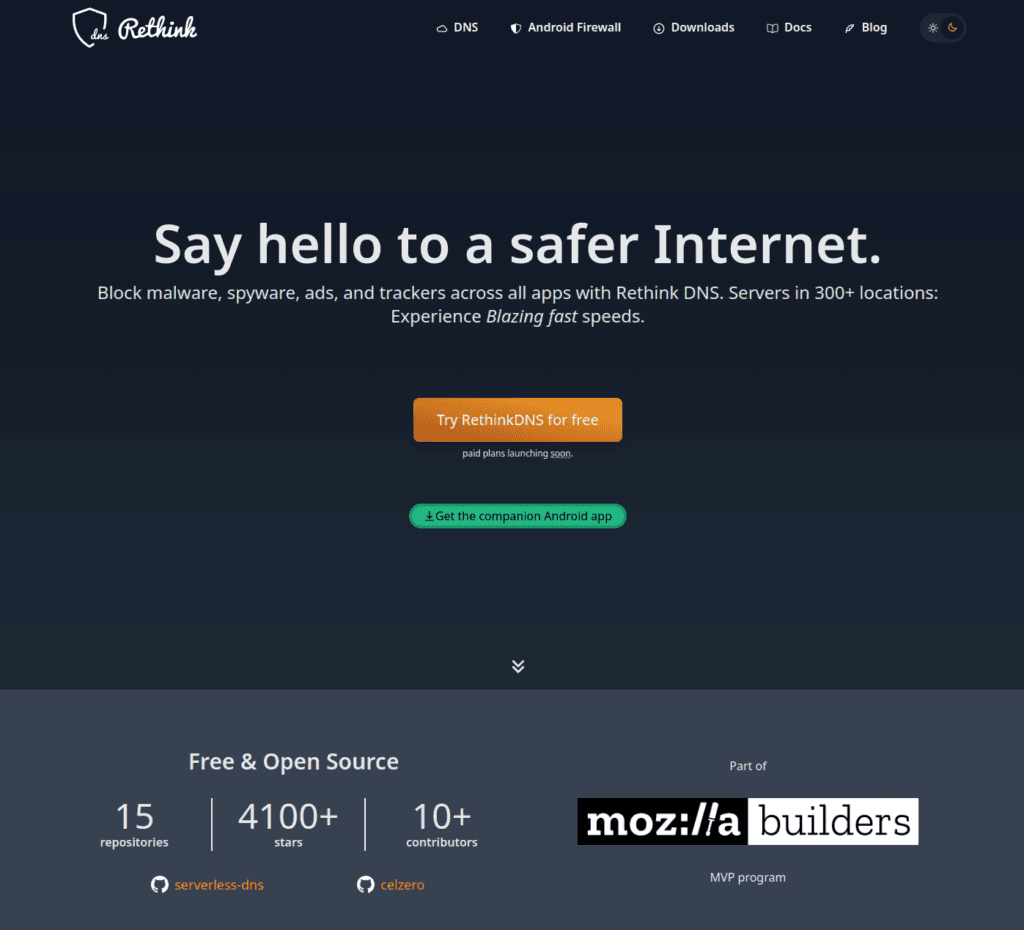In our increasingly digital age, privacy remains a critical concern for users who seek to protect their personal information from surveillance, data breaches, and unwanted tracking.
The phrase "privacy is dead" has gained traction in discussions about digital life, reflecting a growing sense of resignation among users regarding the erosion of personal privacy in an interconnected world. This sentiment stems from high-profile data breaches, pervasive tracking technologies, and the vast amounts of personal information shared on social media, leading many to believe that true privacy is unattainable.
However, is privacy really dead? This article explores the essential role of transparency in building trust among privacy tools and argues that while the landscape is challenging, there are still viable paths to protect personal data. A sustainable approach to digital privacy must prioritize clear communication and responsible data handling.
To illustrate these issues, we will use a fictionalized case study inspired by real events in the realm of digital privacy.
The Fictional Case Summary
The fictional case centers around the interaction that took place in 2021 between two prominent privacy-focused applications: RethinkDNS and Blokada.
RethinkDNS positions itself as a user-centric tool designed to enhance privacy by providing features like DNS-based content blocking and anonymized DNS queries, effectively preventing data tracking and surveillance.
Meanwhile, Blokada is marketed as a leading ad-blocking application that not only removes unwanted ads but also aims to safeguard user privacy by blocking trackers and potentially harmful content.
However, tensions arose when RethinkDNS raised concerns about Blokada’s use of tracking analytics without proper disclosure. Despite efforts to engage Blokada’s developers, their defensive response framed the criticism as fear, uncertainty, and doubt (FUD) generated by competitors. This dynamic underscores the critical importance of transparency and user trust in the digital privacy landscape.
In an era where the threats to digital privacy are ever-present, developers must recognize that user trust is paramount. By embracing transparency, they can help create an environment where users feel confident in their choices. The path to effective privacy solutions is paved with integrity, and by learning from past missteps—both real and fictional—the industry can forge a future where digital privacy is genuinely upheld and respected.
RethinkDNS positions itself as a user-centric tool designed to enhance privacy and prevent data tracking, while Blokada is marketed as a leading ad-blocking application.
The Fictional Actors and the Dissonance
The two main actors in our fictional example, RethinkDNS and Blokada, represent the broader landscape of privacy tools competing for user trust.
RethinkDNS emphasizes a user-centric approach, focusing on enhancing privacy through advanced features.
Blokada, on the other hand, is widely recognized as a robust ad-blocking solution that caters to users looking to eliminate intrusive advertisements from their browsing experience.
In 2021, the dissonance between these two actors fuelled a public debate about the ethical responsibilities of privacy tools:
impromptu :: If it looks like a duck, swims like a duck, and quacks like a duck, then it probably is a duck
Summary: RethinkDNS's insistence on transparency highlighted Blokada’s shortcomings, raising critical questions about how well privacy tools actually protect user data. This conflict not only impacted the reputation of the involved parties but also created confusion and distrust among users seeking reliable privacy solutions.

RethinkDNS emphasizes a user-centric approach, focusing on enhancing privacy through advanced features. With functionalities like DNS-based content blocking and support for anonymized DNS queries, RethinkDNS aims to empower users to take control of their online presence. The project is committed to open-source principles, fostering a transparent development process that encourages user feedback and participation. This dedication to user empowerment positions RethinkDNS as a proactive solution in the fight against data tracking and surveillance.

Blokada, on the other hand, is widely recognized as a robust ad-blocking solution that caters to users looking to eliminate intrusive advertisements from their browsing experience. While it also emphasizes privacy by blocking various trackers, its marketing suggests a more streamlined approach to ad-blocking without extensive disclosures about its data practices. This lack of transparency became a focal point in the conflict, as users began to question whether Blokada truly upheld its promises regarding user privacy.
The Importance of Transparency
As the fictional narrative unfolds, it becomes evident that transparency is not just an ideal; it is a necessity for any privacy tool aiming to build trust with its users. Users expect clear communication about data practices, and when that expectation is not met, it can lead to significant consequences.
In this fictional case, RethinkDNS identified potential tracking mechanisms within Blokada’s application and attempted to engage the developers to address these concerns. However, the fictional response from Blokada’s team was dismissive, framing the inquiries as competitive sabotage rather than constructive criticism. This fictitious reaction illustrates how defensiveness can undermine trust and alienate users.
“ Just as there is no loss of basic energy in the universe, so no thought or action is without its effects, present or ultimate, seen or unseen, felt or unfelt. ” ― Norman Cousins
Vigilant Implications for Users
For end-users, the implications of this lack of transparency are profound. Trust in privacy tools is foundational; when users feel misled or uncertain about how their data is managed, their willingness to engage with these tools diminishes. Users may begin to question the integrity of all privacy-focused applications, leading to a broader skepticism that could harm the industry as a whole.
Reflecting on this dynamic, it is crucial for users to remain vigilant. They should seek out applications that demonstrate a genuine commitment to transparency and user privacy, understanding that their choices impact their digital security.
Navigating Relationships Between Fictional Actors
The fictional interaction between RethinkDNS and Blokada highlights the broader dynamics at play among actors in the digital privacy space.
Rather than fostering an environment of competition marked by secrecy and defensiveness, the industry would benefit from collaboration and shared standards that prioritize user privacy.
Developers might come to understand that they are not just competing for market share; they are also shaping the collective expectations of users regarding privacy. By promoting transparency and accountability, they can cultivate an ecosystem where users feel secure and valued.
This shift in perspective has significant implications for end-users. As developers adopt more transparent practices, they empower users to develop privacy-oriented behaviors and make informed choices about their digital interactions. Here are some suggestions for fostering a privacy-conscious mindset among users:
- Education and Awareness: Developers can play a crucial role in educating users about privacy risks and best practices. This could include providing resources, tutorials, and blog posts that explain how data is collected, used, and protected. By demystifying complex privacy concepts, users can better understand the importance of their choices.
- User-Friendly Privacy Settings: Applications and operating systems should offer intuitive privacy settings that allow users to easily control their data. Developers can design user interfaces that simplify the process of opting in or out of data collection, ensuring that users feel empowered to manage their privacy without confusion.
- Promoting Privacy-First Tools: Encouraging the use of privacy-oriented devices and operating systems can significantly enhance users' digital security. Developers can recommend hardware and software options that prioritize user privacy, such as operating systems like Linux, privacy-focused browsers like Brave or Firefox, and secure messaging apps like Signal.
- Regular Transparency Reports: Developers can establish a routine of publishing transparency reports that outline data handling practices, including any changes in policies, incidents, or partnerships involving user data. This openness helps build trust and reassures users that their privacy is being prioritized.
- Community Engagement: Creating forums or feedback channels where users can voice their concerns about privacy can foster a sense of community and shared responsibility. Developers can actively seek user input on privacy features, making them feel like stakeholders in the development process.
- Incentives for Privacy-Conscious Behavior: Developers might consider implementing reward systems for users who engage in privacy-enhancing behaviors, such as using strong passwords, enabling two-factor authentication, or sharing feedback on privacy features. This not only motivates users but also reinforces the importance of proactive privacy measures.
By integrating these approaches, developers can significantly influence users’ privacy-oriented behaviors.
As users become more informed and equipped to navigate the digital landscape, they will feel more secure in their interactions, ultimately leading to a healthier, more transparent ecosystem where privacy is respected and upheld.
Recommended Reading
Further Considerations
As we consider the lessons from our fictional case study of RethinkDNS and Blokada, it becomes clear that building trust in the realm of digital privacy requires unwavering commitment to transparency. Privacy tools must not only fulfill their intended purpose but also operate with honesty regarding their data practices.
In an era where the threats to digital privacy are ever-present, developers have a possibility to recognize that user trust is paramount. But maybe not?
By embracing transparency, developers can help create an environment where users feel confident in their choices. Or is this only a fictional wish?
The path to effective privacy solutions can be paved with integrity, and by learning from past missteps—both real and fictional—the industry has a potential to forge a future where digital privacy is genuinely upheld and respected. Or not? Not necessarily required?

Riseup, Personal VPN Sevices
Riseup provides online communication tools for people and groups working on liberatory social change, a project to create democratic alternatives and practice self-determination by controlling our own secure means of communications.




